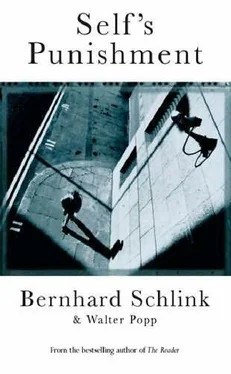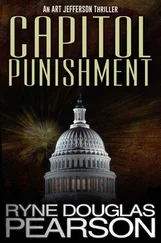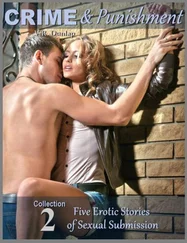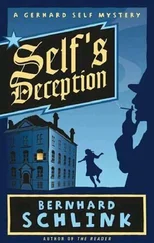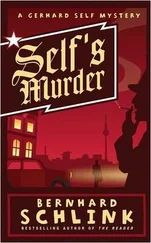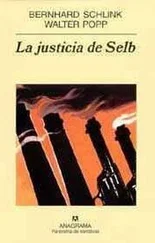The garden path followed the mountain upwards. Tyberg enquired after Judith’s health, her plans, her work at the RCW. He had a quiet, pleasant manner of putting his questions, and showing his interest to Judith by small observations. Nonetheless I was amazed at how openly Judith, albeit not mentioning my name or role in it all, recounted her departure from the RCW. And just as amazed at Tyberg’s reaction. He was neither sceptical regarding Judith’s picture of events, nor enraged by any of the participants, from Mischkey to Korten, nor did he express condolence or regret. He simply registered Judith’s account attentively.
With tea the butler brought us pastries. We sat in a large chamber with a grand piano that Tyberg referred to as the music room. Discussion had turned to the economic situation. Judith juggled with capital and labour, input and output, the balance of trade, and the gross national product. Tyberg and I connected over the notion of the Balkanization of the Federal Republic of Germany. He agreed so swiftly that to begin with I feared he’d misunderstood me and thought I meant there were too many Turks. But his mind, too, was on the decrease in the number of trains and in their punctuality, and how the post office worked less and continuously less reliably, and the police were getting more shameless by the day.
‘Yes,’ he said thoughtfully. ‘Also there are so many regulations that not even the bureaucrats themselves take them seriously any more, instead they apply them either rigidly or sloppily entirely by whim, and sometimes don’t apply them at all. I often wonder what sort of industrial society is going to grow out of all this. Post-democratic feudal bureaucracy?’
I love discussions like this. Unfortunately, although he may read a book now and again, Philipp’s sole interest is women, and Eberhard’s horizon doesn’t go beyond the sixty-four squares. Willy had thought in grand evolutionary perspectives and toyed with the idea that the world, or what humans leave of it, will be taken over by birds in the next millennium.
Tyberg scrutinized me for a long time. ‘Of course. Being Frau Buchendorff’s uncle doesn’t mean you have to be called Buchendorff. You are the retired public prosecutor Doctor Self.’
‘Not retired, dropped out in nineteen forty-five.’
‘Made to drop out, I bet,’ said Tyberg.
I didn’t want to explain myself. Judith noticed and jumped in. ‘Just leaving doesn’t mean much. Most of them went back. Uncle Gerd didn’t, not because he couldn’t, but because he no longer wanted to.’
Tyberg continued to look at me probingly. I felt ill at ease. What do you say to someone sitting opposite you whom you almost sent to the gallows due to an erroneous investigation? Tyberg wanted to know more. ‘So you didn’t want to remain a public prosecutor after nineteen forty-five. That’s interesting. What were your reasons?’
‘When I tried to explain it to Judith once she found my reasons to be more aesthetic than moral. I was disgusted by the attitude of my colleagues during and after their re-employment, the lack of any awareness of their own guilt. All right, I could have got involved again if I’d had a different attitude and kept the guilt in mind. But I’d have felt like an outsider, and so I preferred to stay properly outside.’
‘The longer you sit there facing me, the clearer I see you as the young prosecutor. Of course you’ve changed. But there’s still that sparkle in your eyes, more mischievous now, and that cleft in your chin was already a dimple back then. What were you thinking of, to wipe the floor with Dohmke and me like that? I’ve just been working on the trial in my memoirs.’
‘The trial came up again for me recently, as well. That’s why I’m glad to be able to talk to you. In San Francisco I met the partner of the late prosecution witness Professor Weinstein and discovered his testimony was false. Someone from the Works and an SS officer put pressure on him. Do you have any idea, or do you even know who could have had an interest in your and Dohmke’s disappearance? I hate to have been used as the tool of unknown interests.’
Tyberg rang a bell, the butler appeared, tidied up, and served sherry. Tyberg sat there, frowning, staring into space. ‘I started pondering this in prison while I was awaiting trial, and to this day I have found no answer. Time and again I’ve thought of Weismüller. That was also the reason I didn’t want to return to RCW immediately after the war. But I’ve no confirmation for this notion. I’ve also been preoccupied for a long time by how Weinstein could have given that testimony. That he made it to my desk, found the manuscript in the drawer, misinterpreted it, and reported me, I found devastating enough. But his testimony about a conversation between Dohmke and myself that never took place was even more devastating. I wondered if it was all for a few advantages at the camp. Now I hear he was forced. It must have been terrible for him. Did his partner know and tell you that he tried to contact me after the war, and I refused? I was too hurt and he must have been too proud to tell me in his letter about the pressure he’d been under.’
‘What happened to your research at the RCW, Herr Tyberg?’
‘Korten kept going with it. It was the result anyway of close cooperation between Korten, Dohmke, and myself. The three of us had also made the decision together that we would only pursue the one path to begin with, and put the other on the backburner. The whole thing was our baby, you see, that we jealously hatched and tended and didn’t let anyone near. We didn’t even let Weinstein into our confidence although he was an important part of our team, scientifically almost on equal footing. But you wanted to know what happened to our research. Since the oil crisis I wonder sometimes if it won’t become highly topical again all of a sudden. Fuel synthesis. We’d gone at it a different way from Bergius, Tropsch, and Fischer because from the outset we attributed great significance to the cost factor. Korten continued the development of our process with great dedication, and readied it for production. That work was, quite rightly, the basis of his swift ascent in the RCW even though after the end of the war the process itself was no longer of importance. Korten, I believe, had it patented, though, as the Dohmke-Korten-Tyberg process.’
‘I don’t know if you realize how dreadful I feel that Dohmke was hanged; and equally how happy I am that you managed to escape. It’s mere curiosity, of course, but would you mind telling me how you did it?’
‘That’s sort of a long story. I want to tell you, but… you will stay for dinner, won’t you? How about afterwards? I’ll just let them know so the butler can prepare the food and make a fire. And until then… Do you play an instrument, Herr Self?’
‘The flute, but I haven’t had any time to play all summer and autumn.’
He stood up, fetched a flute case from the Biedermeier cupboard and had me open it. ‘Do you think you can play this?’ It was a Buffet. I put it together and played a few scales. It had a wonderfully soft, yet clear tone, jubilant in the high reaches, in spite of my bad intonation after the long break. ‘Do you like Bach? How about the Suite in B minor?’
We played until dinner, after the Suite in B minor, Mozart’s Concerto in D major. He played the piano confidently and with great expression. I had to bluff my way through some of the fast passages. At the end of the pieces Judith laid her knitting aside and clapped.
We ate duck with chestnut stuffing, dumplings, and red cabbage. The wine was new to me, a fruity Merlot from Tessin. By the fire, Tyberg asked us to keep his story to ourselves. It would be made public soon, but until then discretion would be appreciated. ‘I was in Bruchsal Penitentiary, in the death cell waiting for my execution.’ He described the cell, the everyday routine on death row, knocking on the wall to communicate with Dohmke in the neighbouring cell, the morning Dohmke was taken away. ‘A few days later I was also taken, in the middle of the night. Two members of the SS were demanding my transfer to a concentration camp. And then I realized one of the SS officers was Korten.’ That same night he had been taken over the border beyond Lörrach by Korten and the other SS man. On the other side two gentlemen from Hoffmann La Roche were waiting for him. ‘The next morning I was drinking chocolate and eating croissants, as though it were the middle of peacetime.’
Читать дальше
